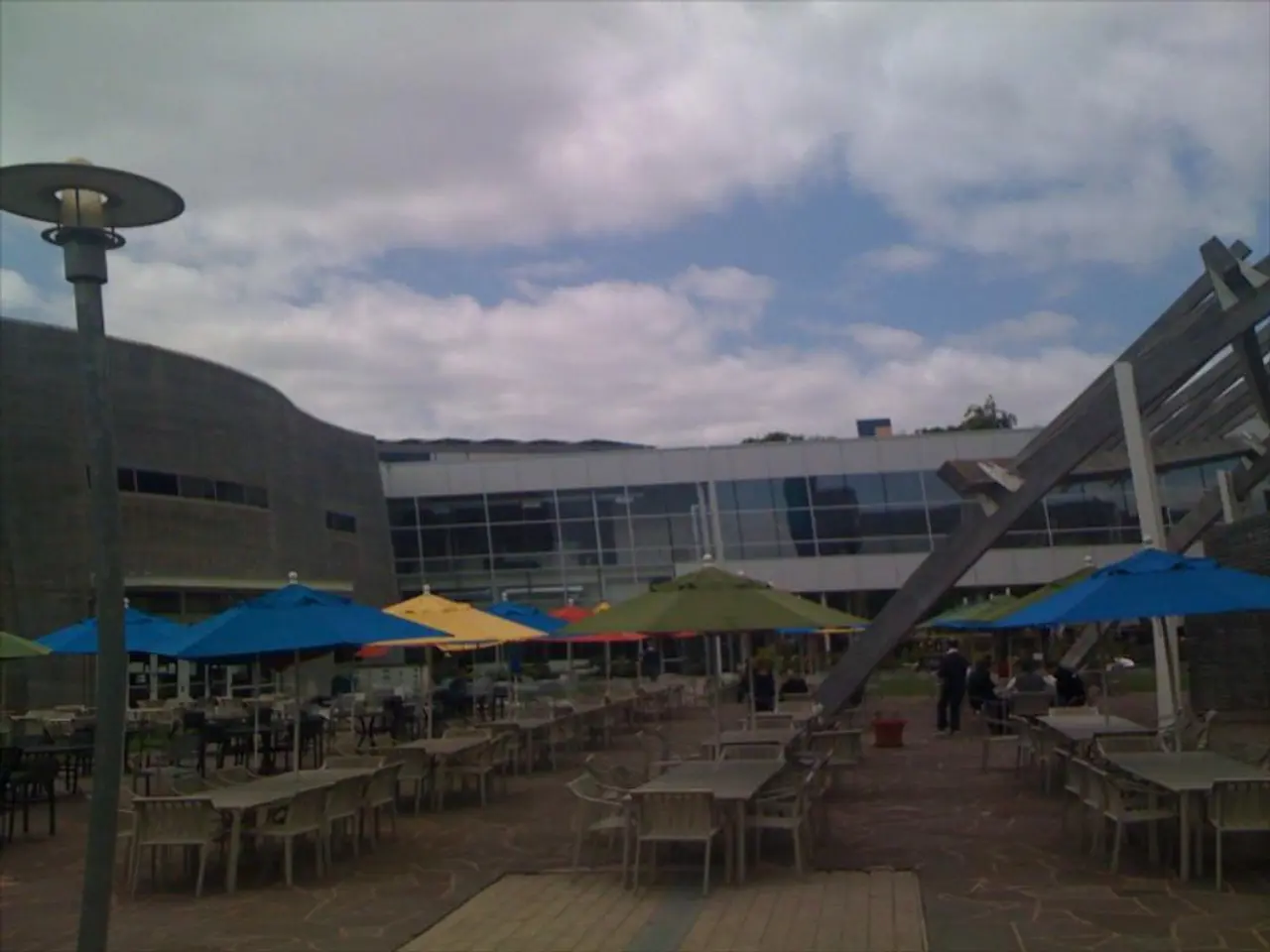Harvard T.H. Chan School of Public Health partners with WTTC in a significant shared endeavor
Harvard and WTTC Team Up to Drive Sustainable Travel & Tourism
In a groundbreaking move, the World Travel & Tourism Council (WTTC) and Harvard T.H. Chan School of Public Health have joined forces to address the urgent need for sustainability in the travel and tourism sector.
The two-day action leadership programme, held at Harvard University, brought together CEOs and industry leaders from various Travel & Tourism companies, including Dallas Fort Worth International Airport, Carlson Wagonlit Travel, Royal Caribbean Cruises, Virtuoso, lebua, Carnival Corporation, Intrepid Group, Google, Hotelbeds, City Sightseeing, Apple Leisure Group, Indian Hotels Company, and The Travel Corporation.
Dr. Jack Spengler, Akira Yamaguchi Professor of Environmental Health and Human Habitation at Harvard T.H. Chan School of Public Health, emphasized the need for collaboration across sectors to address the accelerating pace of climate change. He reiterated this call, stating that sector-wide collaboration is essential to combat the environmental challenges facing the travel and tourism industry.
Industry leaders from the participating companies expressed their commitment to implementing sustainable practices in their businesses. Brett Tollman, CEO of The Travel Corporation, pledged to prioritize sustainable, purpose-driven tourism as a key focus for his company moving forward. Sean Donohue, CEO of Dallas Fort Worth (DFW) International Airport, committed to driving continued sustainability progress and business value through partnerships like the one with WTTC.
The collaboration aims to produce groundbreaking research in the form of case studies and key papers on sustainability and best practices within the Travel & Tourism sector. The programme has already resulted in several such case studies, highlighting the importance of continued collaboration between industry leaders and academic institutions to drive sustainable change.
The World Travel & Tourism Council, led by President & CEO Gloria Guevara, has been at the forefront of integrating sustainable practices in travel and tourism. Notably, the WTTC has developed initiatives addressing the sector's environmental and climate agendas through partnerships with global bodies like the UNFCCC and UNEP, driving reductions in the industry's climate footprint.
In response to COVID-19, the WTTC introduced the Safe Travels Protocols, the first global health and safety guidelines created by the private sector to facilitate safe reopening. These protocols, widely adopted by over 400 destinations, use a Safe Travels stamp to restore traveler confidence and enable seamless travel even amid pandemic challenges.
The programme also highlights the importance of ethical leadership and crisis preparedness in managing travel and tourism sustainably. Leadership initiatives focus on embedding ethics and emotional labor understanding in tourism management to improve sector resilience and staff wellbeing.
Building on these aspects, broader principles have been proposed to foster long-term transformation toward sustainability, including collaboration between private and public sectors, innovation in practices, and integrating health, safety, and environmental considerations into all aspects of travel and tourism.
Gloria Guevara expressed excitement about the collaboration, stating that it has the potential to usher in a new era within the Travel & Tourism sector. Dr. Wendy Purcell, Director and lead faculty of the programme, believes that the collaboration has the potential to shift minds towards more sustainable Travel & Tourism practices globally. She expressed optimism about the future of sustainable Travel & Tourism, stating that the industry is poised for significant change and growth in this area.
Brett Tollman, CEO of The Travel Corporation, also expressed optimism about the partnership, stating that it will drive continued sustainability progress and business value. Sean Donohue, CEO of Dallas Fort Worth (DFW) International Airport, expressed similar sentiments, stating that he looks forward to the partnership's potential to drive continued sustainability progress at his airport.
In conclusion, the WTTC and Harvard T.H. Chan programme underscore best practices such as adopting global environmental partnerships, instituting private-sector-led health protocols, ethical and inclusive leadership, and embedding sustainability and crisis resilience into tourism strategy and operations to advance a responsible and future-ready travel industry. These efforts collectively support the transition toward a more sustainable and resilient travel and tourism sector aligned with global health and environmental goals.
[1] WTTC Safe Travels [2] WTTC Climate Action [3] WTTC Health and Safety [4] WTTC Leadership and Crisis Preparedness [5] WTTC Guiding Principles for a Sustainable Industry
- The collaboration between the World Travel & Tourism Council (WTTC) and Harvard T.H. Chan School of Public Health aims to produce research on sustainability and best practices in the travel and tourism sector, with a focus on climate change.
- The WTTC has developed initiatives addressing the environmental and climate agendas, like the Safe Travels Protocols, a global health and safety guideline created to facilitate safe travel during the pandemic.
- The leadership initiatives within the programme emphasize the importance of ethical leadership and crisis preparedness in managing the travel and tourism sector sustainably.
- In response to the call for sustainability, industry leaders from various companies have pledged to prioritize sustainable practices in education and self-development, online education, finance, business, and environmental-science, contribuiting to the future growth of sustainable Travel & Tourism.




